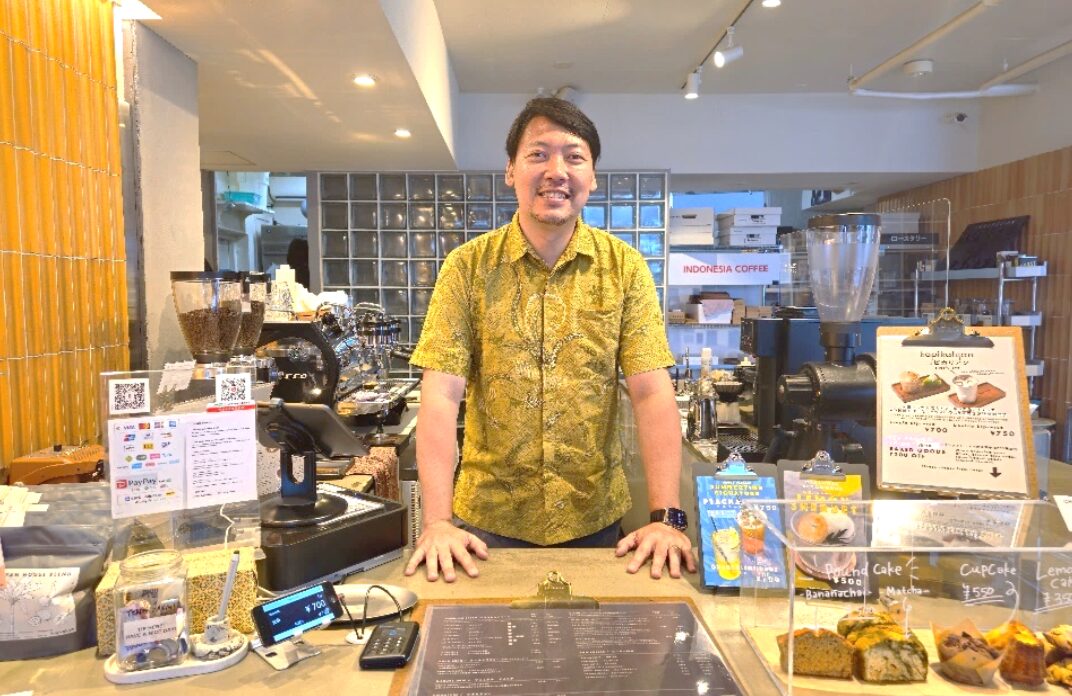In Tokyo’s vibrant Harajuku district, where fashion-forward youth mingle with tourists exploring sophisticated shops, Kopikalyan—offers more than just a cup of coffee. Kopikalyan is a cultural dialogue in a cup, a bridge between Indonesia and the world, where every sip celebrates Indonesian coffee’s rich heritage.
At the heart of this Kopikalyan Tokyo brunch is Mr. Kenny Tjahyadi or Kenny, a modest yet passionate entrepreneur in the world of specialty coffee. His family roots in the coffee business trace back to 1935 in Bali, where her father continues to run one of the island’s oldest coffee businesses. “My dad taught me to like coffee, but not to love it too much because loving something excessively might cloud your judgment,” Kenny shares with a reflective smile. This philosophy of balance is central to Kopikalyan, where Kenny blends Indonesia coffee’s charm with Japanese standard without overshadowing its fundamental qualities.
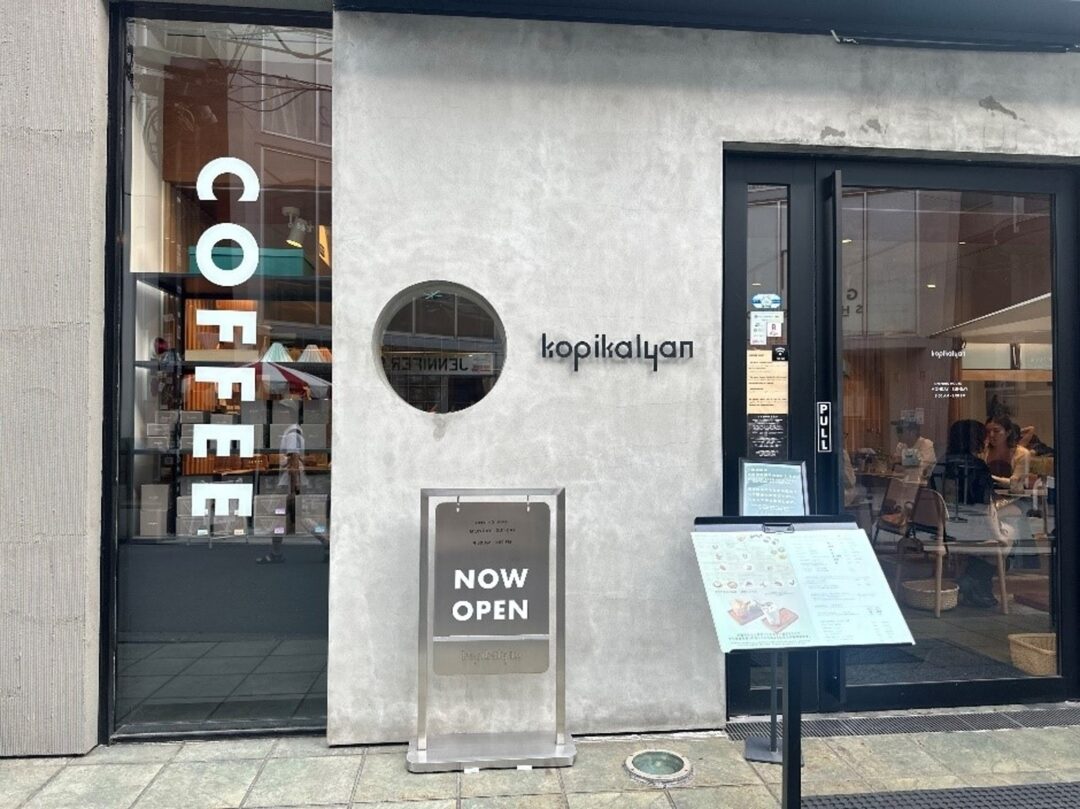
The seeds of Kenny’s motivation began in Melbourne, Australia, where he studied hospitality with a focus on pastry and catering. “Melbourne was like the epicenter of coffee culture,” he recalls. The city’s vibrant coffee scene sparked an idea: to bring his family’s Indonesian coffee tradition to a new audience. Yet, Melbourne already had a well-established coffee scene, so Kenny looked elsewhere and found that Japan had a huge community of coffee lovers. In 2020, as the world grappled with the uncertainty of the COVID-19 pandemic, Kopikalyan took a bold step by opening its doors in Harajuku, Tokyo as the first oversea branch. It was a leap of faith during a time when many businesses were closing, and the streets of Harajuku were unusually quiet. But from the moment the first cup was brewed, Kopikalyan became a comfort zone for the Indonesian community in Tokyo.
During those challenging early months, the cafe’s survival depended heavily on a small but passionate group of Indonesian university students who had found themselves far from home during the global pandemic. These young students, craving a taste of their homeland, quickly embraced Kopikalyan as their own. They did not just come for the coffee; they came for a sense of familiarity, for a place that reminded them of the warmth and comfort of home. Word spread like wildfire through the community, and soon, Kopikalyan became a haven for those seeking a connection to their roots. “We wouldn’t be here today without them,” Kenny reflects, his voice filled with gratitude. Indeed, in those uncertain times, Kopikalyan was not just serving coffee; it was serving hope and a taste of home in every cup.
An Indonesian Coffee Haven in Harajuku
For Kenny, Kopikalyan began with a simple yet profound goal: to share stories of Indonesian coffee with Japan. He explains “I wanted to introduce not just the taste, but the story behind every bean,” he says, reflecting on the cultural fusion that his cafe represents. Kenny believes that rather than imposing Indonesian culture on Japanese customers, the cafe could let the coffee do the talking.
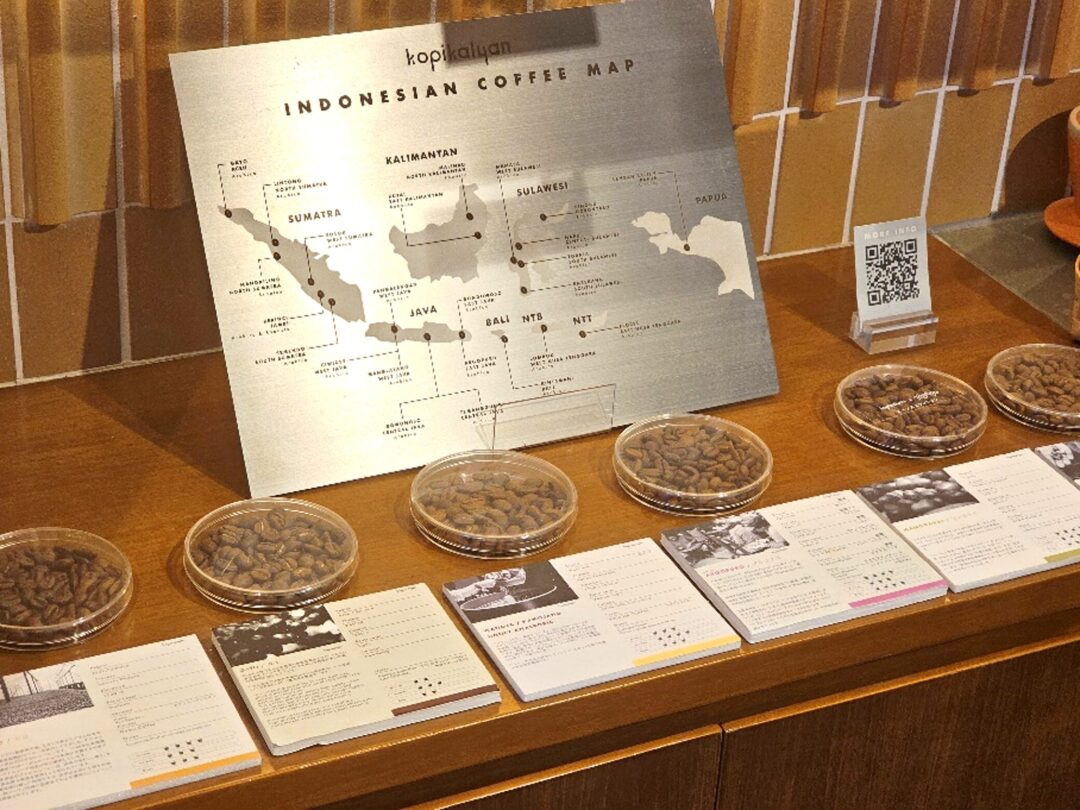
This philosophy is evident in the cafe’s approach to customer interactions. Kenny notes, “Kopikalyan’s strategy is to present excellent coffee, and if people enjoy it, they’ll naturally ask questions. That’s when the real conversation about Indonesian coffee begins.”
Truly, Kopikalyan’s success lies in its subtlety. The cafe deliberately avoids overt Indonesian decor or nationalistic displays. Kenny shares an anecdote about a Japanese student who visited Kopikalyan. She told Kenny that she did not realize the coffee was an Indonesian brew until after she enjoyed it. “That Japanese costumer came in with no preconceptions and left with an appreciation for what we offer,” Kenny recalls. This is exactly how Kopikalyan wants to introduce Indonesian coffee—by allowing the product to shine on its own merits.

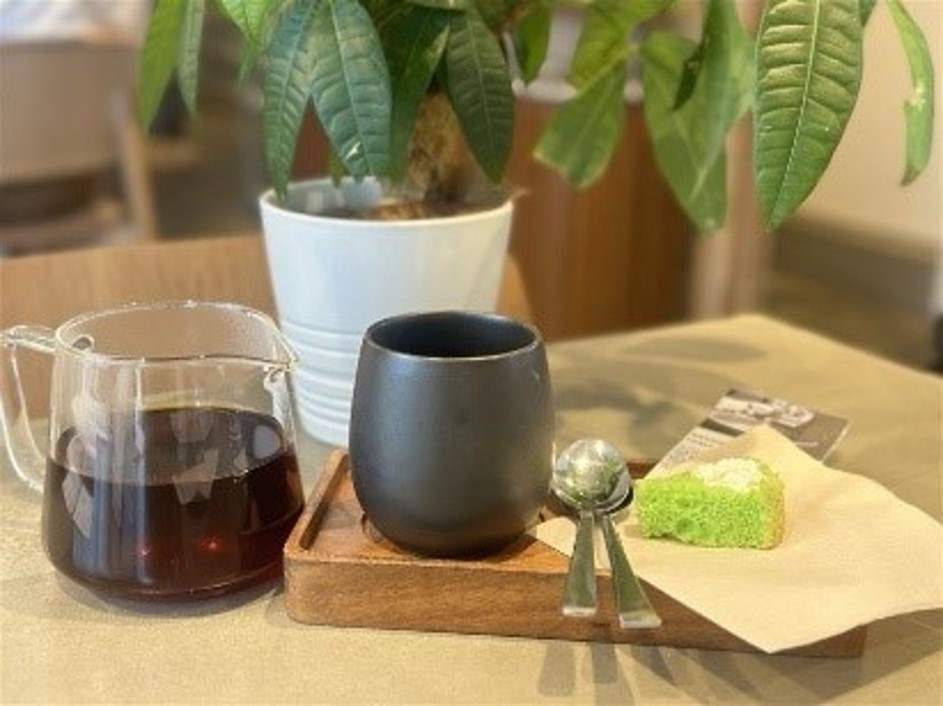
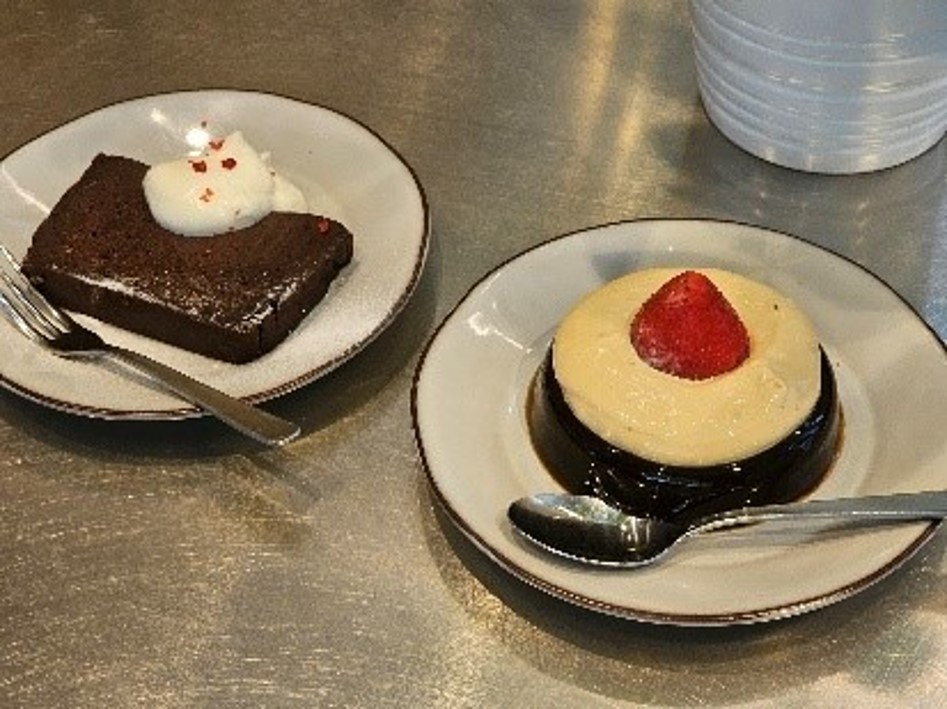
At Kopikalyan, the fusion of subtle Indonesian and Japanese cultures is evident not only in the coffee but in the overall experience. One of their standout offerings is a cold brew infused with palm sugar and asam (tamarind) syrup—a drink that perfectly encapsulates the specialty of Indonesian flavors with latte, Japanese customers’ favorite drink. “We wanted to create something that resonates with both cultures,” Kenny explains. “This drink has been a hit with our customers, and it’s a perfect example of what we’re trying to achieve here.” Another is their coffee jelly—a popular Japanese dessert—is infused with Indonesian ingredients like pandan and mascarpone cream. This fusion not only highlights the versatility of Indonesian coffee but also goes along with the everyone’s appetite.
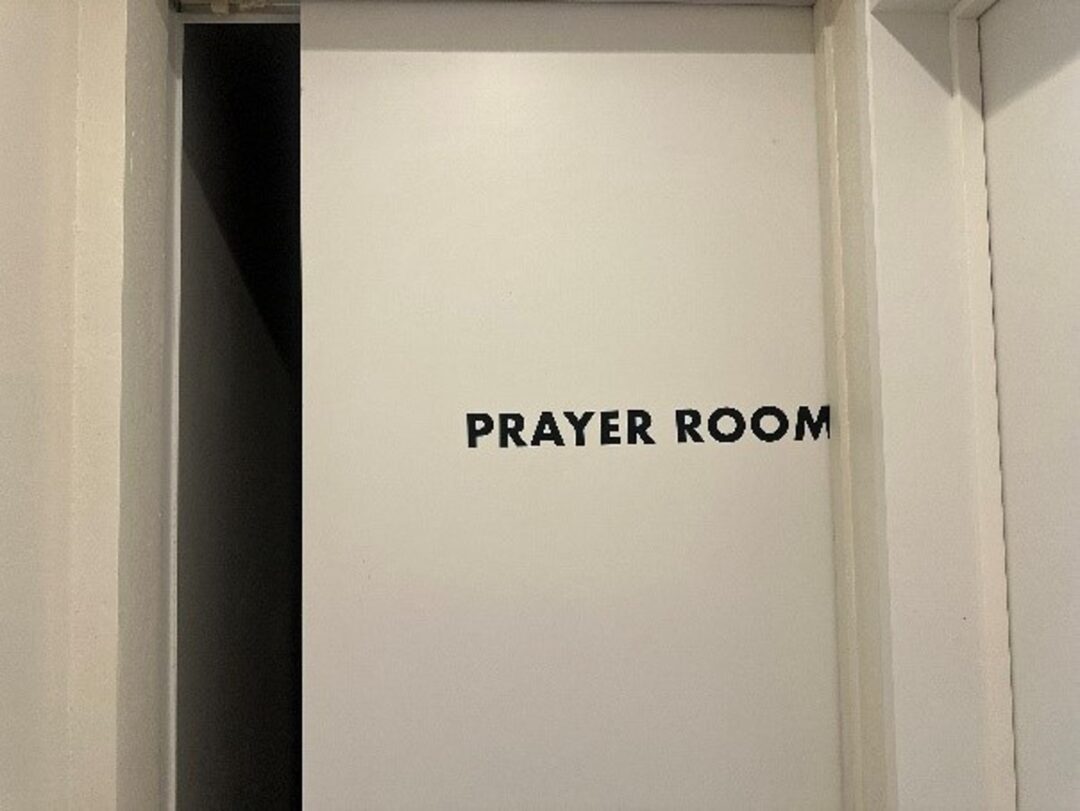
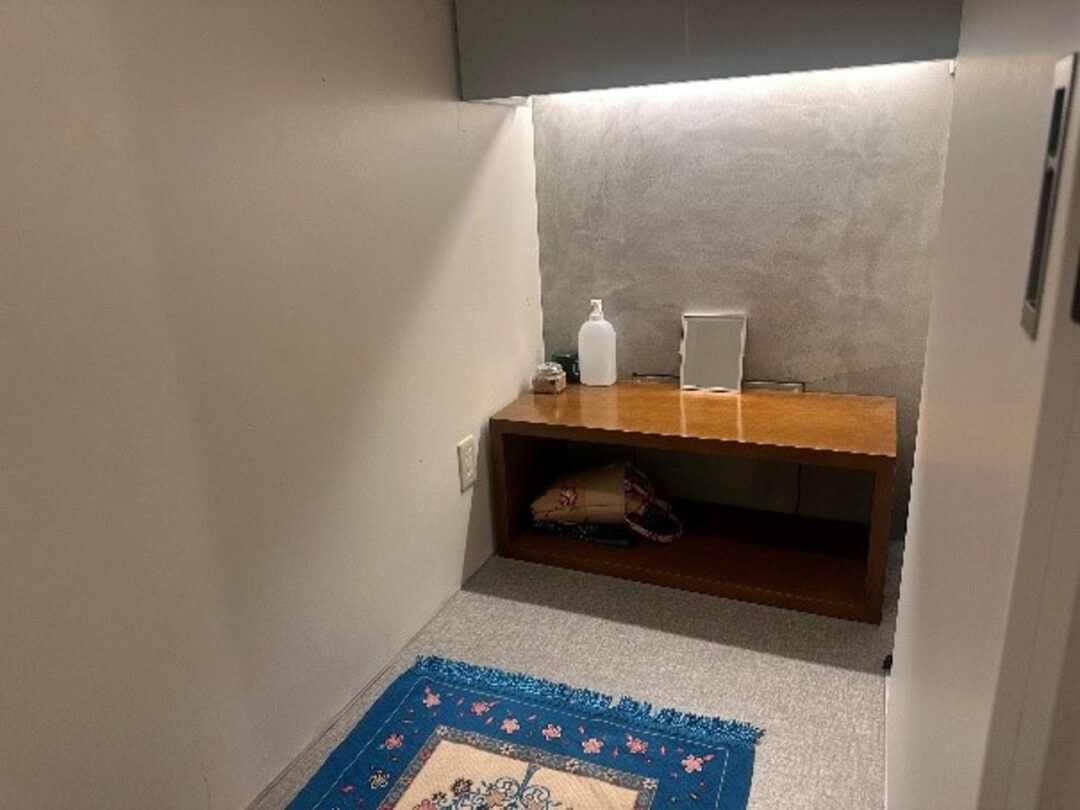
Understanding that Kopikalyan is more than just a place to enjoy coffee, Kenny and his team have thoughtfully integrated a prayer room that makes both Indonesian costumers, and international tourists feel at home—even in the bustling heart of Harajuku. This quiet, sacred space within the cafe offers a moment of peace and reflection to all who need it. “Providing a prayer room wasn’t just a practical decision; it was about honoring the cultural and spiritual needs of people who need a moment to pray,” Today, Kopikalyan is a welcoming space for everyone, a place where people from all walks of life can feel comfortable and respected.
Government Support and the Indonesian House of Coffee
Bringing Indonesian coffee especially from small-scale farmers in Indonesia to Japan is not an easy task. Import regulations, taxes, and the logistics of sourcing coffee pose significant challenges. “While the import taxes are manageable—0% for green beans and about 12% for roasted beans—the real challenge lies in the inconsistent production levels of Indonesian farmers. Some years, they might produce 20 tons, and the next, only a fraction of that.” Kenny explains. This unpredictability makes it hard to maintain a consistent supply chain in a competitive market like Tokyo.
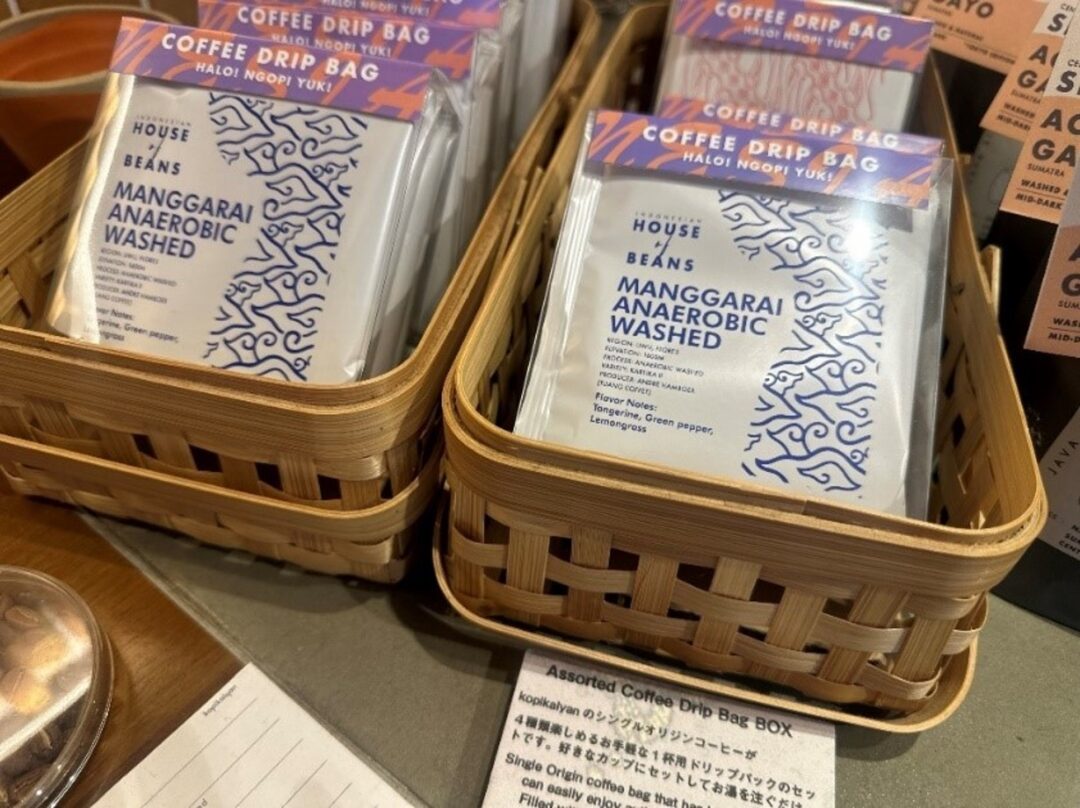
Therefore, support from the Indonesian government has been instrumental in popularizing Indonesian coffee in Japan. Initiatives like the Indonesian House of Beans (IHOB) project, led by Bank of Indonesia, Ministry of Trade Indonesia and the Indonesian Embassy in Tokyo, have helped extend Kopikalyan’s reach to wider networks. IHB focuses on introducing and promoting curated Indonesian coffee beans to Japan, while contributing to increase the welfare of Indonesian coffee farmers. “Their project helps showcase our products year-round at Kopikalyan, engaging with the Japanese market and highlighting the quality of Indonesian coffee,” Kenny explains. This initiative also involves promoting Indonesian coffee at various events across Japan, allowing customers to sample the coffee and learn more about its origins.
A Taste of Success
One of Kenny’s proudest achievements is the success of Indonesian coffee at the Cup of Excellence, an international competition often referred to as the “Olympics of Coffee.” In 2021, Indonesia participated for the first time and won the first ever Indonesia Cup of Excellence. “Winning the first-ever Indonesia Cup of Excellence put us on the map, not just in Indonesia but globally,” he recalls. After the competition, the top 20 coffees from Indonesia were auctioned off, and about 80% were sold to Japanese companies. “That was a real eye-opener,” Kenny says. “It showed that Japanese companies were starting to see the true value in Indonesian coffee.” Kenny noted that it was not just a commercial win; it was proof that Indonesian specialty coffee could stand toe-to-toe with the best in the world.
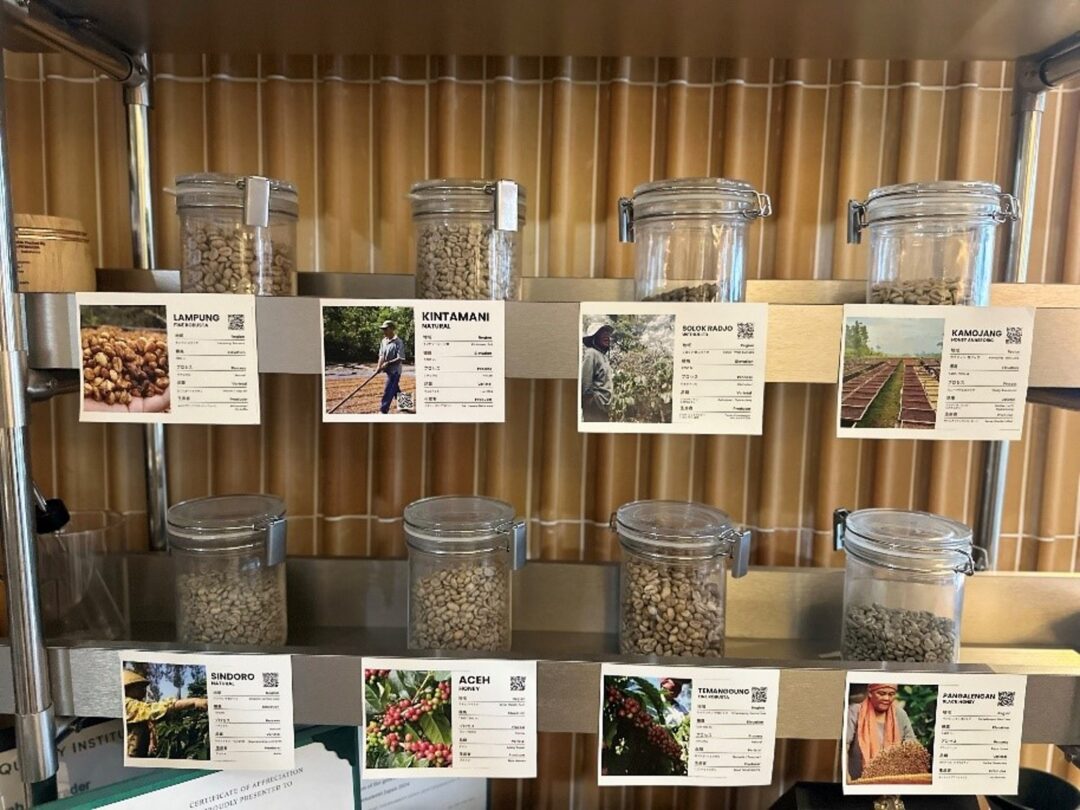
In 2022, Kopikalyan took its mission to promote Indonesian coffee culture to new heights by teaming up with the ASEAN-Japan Centre to create the ASEAN Coffee Map. This project was not just about plotting points on a map; it was about a narrative that deepened the understanding of specialty coffee among consumers and producers across ASEAN and Japan. “The map was about more than just locations,” Kenny reflects. “It was about telling the stories, ensuring that people could connect with the history and unique qualities.”
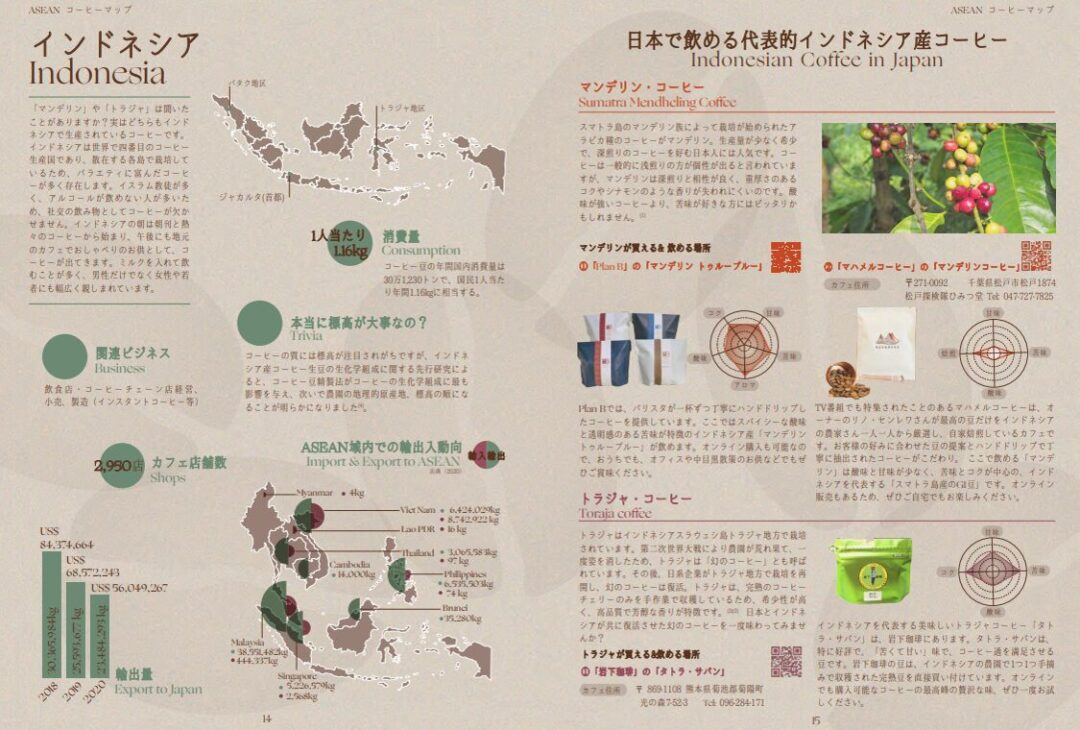
The ASEAN Coffee Map became a bridge between cultures, much like Kopikalyan itself. It highlighted the journey of coffee from the fertile soils of ASEAN nations to the discerning palates of Japanese coffee lovers, creating a shared appreciation for the craft and care involved in every stage of the process.
Kopikalyan’s commitment to elevating Indonesian coffee did not stop there. As a regular participant in the Specialty Coffee Association of Japan (SCAJ) exhibition—one of Asia’s most prestigious annual B2B events for specialty coffee—Kopikalyan positioned itself at the heart of the specialty coffee movement. “Presenting at SCAJ alongside industry leaders is a big deal,” Kenny says with pride. “It’s not just about showing our coffee—it’s about being part of the conversation, contributing to how specialty coffee is perceived and appreciated across Asia.” This participation has further solidified Kopikalyan’s reputation as a key player in the regional coffee community.
Looking Ahead
In a city where trends emerge daily, Kopikalyan stands out by offering a genuine taste of Indonesia, allowing the coffee to tell its own story. As Kenny succinctly puts it, “We use coffee as a bridge to introduce our culture, rather than using our culture to push coffee.” By doing so, Kopikalyan not only serves a remarkable cup of coffee but also connect a deeper appreciation for Indonesian heritage—one sip at a time.
Interview by:
Dr. Preechaya Kittipaisalsilpa
Mr. Bryan Tan Jia Yang
Photos:
Mr. Kenny Tjahyadi


